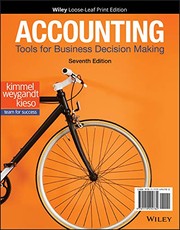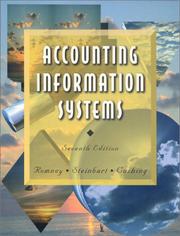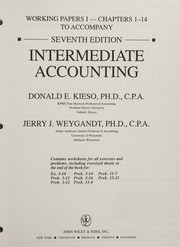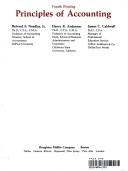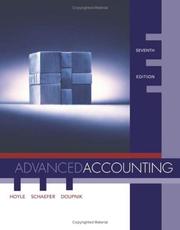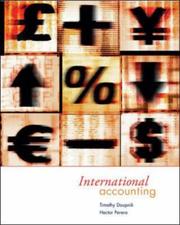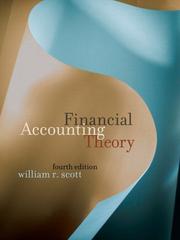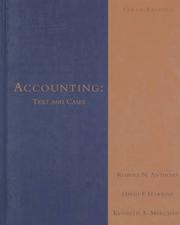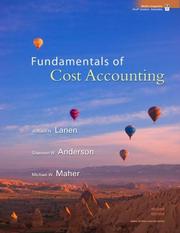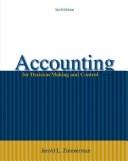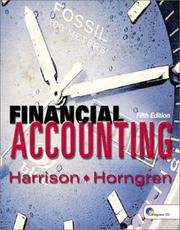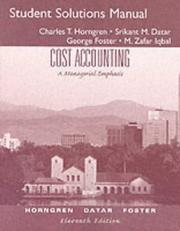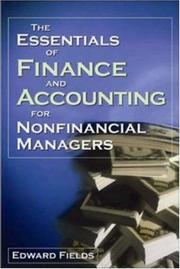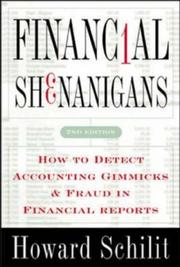Looking for the best books on accountancy to help you master the principles and practices of financial management? Whether you’re a student, professional accountant, or business owner, this list of the 20 best accountancy books will provide you with valuable insights, practical knowledge, and expert guidance. From foundational texts to advanced resources, these books cover topics such as financial reporting, auditing, taxation, and more. Discover the essential reading material that will enhance your understanding of accountancy and elevate your financial expertise. Dive into this curated selection of the finest books on accountancy and take your financial acumen to the next level.
Contents
- 1 20 Best Accountancy Books
- 2 Financial Accounting: Tools for Business Decision-Making
- 3 Accounting Information Systems
- 4 Intermediate Accounting
- 5 Auditing and Assurance Services
- 6 Principles of Accounting
- 7 Advanced Accounting
- 8 International Accounting
- 9 Forensic Accounting and Fraud Examination
- 10 Financial Accounting Theory
- 11 Principles of Auditing and Other Assurance Services
- 12 Accounting: Texts and Cases
- 13 Fundamentals of Cost Accounting
- 14 Accounting for Decision Making and Control
- 15 Accounting Made Simple: Accounting Explained in 100 Pages or Less
- 16 Financial Accounting
- 17 Cost Accounting: A Managerial Emphasis
- 18 Intermediate Accounting
- 19 Managerial Accounting
- 20 The Essentials of Finance and Accounting for Nonfinancial Managers
- 21 Financial Shenanigans: How to Detect Accounting Gimmicks & Fraud in Financial Reports
- 22 Final Thoughts on Best Accountancy Books
- 23
20 Best Accountancy Books
Financial Accounting: Tools for Business Decision-Making
by Paul D. Kimmel, Jerry J. Weygandt, Donald E. Kieso
Financial Accounting: Tools for Business Decision-Making is a comprehensive book on accountancy that provides a clear and practical introduction to the fundamental concepts of financial accounting. Written by renowned authors Paul D. Kimmel, Jerry J. Weygandt, and Donald E. Kieso, this accountancy book is designed to help students understand the role of accounting in business decision-making.
The book covers essential topics such as the accounting cycle, financial statements, internal controls, and the use of accounting information for decision-making. With a focus on real-world examples and practical applications, the authors strive to make complex accounting principles accessible to students of all levels.
Financial Accounting: Tools for Business Decision-Making is not just a standard book about accountancy; it is a valuable resource for anyone looking to gain a solid understanding of financial accounting and its importance in the business world. Whether you are a student, a professional, or an entrepreneur, this book provides the necessary tools to make informed financial decisions and understand the language of business.
Accounting Information Systems
by Marshall B. Romney, Paul J. Steinbart
Accounting Information Systems by Marshall B. Romney and Paul J. Steinbart is a comprehensive and engaging book on the intersection of technology and accounting. This innovative book on accountancy focuses on the crucial role of information systems in modern accounting practices.
The authors provide a clear and in-depth exploration of the key concepts, tools, and techniques essential for understanding and implementing accounting information systems. They cover topics such as internal controls, fraud prevention, and the use of software for financial reporting.
With its practical approach and real-world examples, this accountancy book is an invaluable resource for students, professionals, and anyone interested in the dynamic field of accounting. Whether you are new to the subject or seeking to deepen your understanding, Romney and Steinbart’s book offers a wealth of knowledge to help you navigate the complex world of accounting information systems.
Intermediate Accounting
by Donald E. Kieso, Jerry J. Weygandt, Terry D. Warfield
Intermediate Accounting by Donald E. Kieso, Jerry J. Weygandt, and Terry D. Warfield is a comprehensive and in-depth book on accountancy that is widely used in accounting education. This authoritative text provides a thorough understanding of the principles and procedures of financial accounting, with a focus on the theoretical framework and practical application of accounting standards.
The book covers a wide range of topics, including the conceptual framework of accounting, revenue recognition, financial statement presentation, and more. It also delves into complex issues such as accounting for income taxes, pensions, and leases. With its clear explanations and illustrative examples, this accountancy book is a valuable resource for students, instructors, and accounting professionals.
Intermediate Accounting is known for its rigorous approach to accounting principles and its emphasis on critical thinking and analytical skills. It challenges readers to think critically about accounting practices and their implications, making it an essential read for anyone seeking a deeper understanding of financial reporting and analysis.
Auditing and Assurance Services
by Alvin A. Arens, Randal J. Elder, Mark S. Beasley, Chris E. Hogan
Auditing and Assurance Services by Alvin A. Arens, Randal J. Elder, Mark S. Beasley, Chris E. Hogan is a comprehensive and insightful book on accountancy that provides a thorough understanding of auditing and assurance services. The book covers the fundamental concepts and principles of auditing, while also delving into the latest developments and practices in the field.
Readers will gain valuable insights into the role of auditors in ensuring the reliability and integrity of financial information, as well as the importance of assurance services in enhancing the credibility of financial statements. The authors present real-world examples and case studies to illustrate the practical application of auditing and assurance concepts, making the content engaging and relevant.
Whether you are a student aspiring to enter the accountancy profession or a practicing auditor looking to enhance your knowledge and skills, this accountancy book is a valuable resource that will deepen your understanding of auditing and assurance services.
Principles of Accounting
by Belverd E. Needles, Marian Powers, Susan V. Crosson
Principles of Accounting is a comprehensive and insightful book on accountancy that provides a thorough understanding of the fundamental principles and practices of financial accounting. Authored by Belverd E. Needles, Marian Powers, and Susan V. Crosson, this book about accountancy is designed to help students develop a strong foundation in accounting concepts, terminology, and procedures.
Readers will find the content engaging and accessible, with real-world examples and practical applications that bring the principles of accountancy to life. The authors’ expertise and clear writing style make complex accounting topics easy to understand, making this accountancy book an invaluable resource for both students and professionals alike.
Whether you’re new to the field of accountancy or looking to deepen your understanding of financial accounting, Principles of Accounting is an essential guide that will enhance your knowledge and skills in this critical area of business.
Advanced Accounting
by Joe Ben Hoyle, Thomas Schaefer, Timothy Doupnik
Advanced Accounting by Joe Ben Hoyle, Thomas Schaefer, and Timothy Doupnik is a comprehensive and in-depth book on accountancy that delves into complex topics and advanced concepts in the field. This authoritative resource provides a thorough exploration of advanced accounting principles, including consolidations, partnerships, international accounting, and governmental and non-profit accounting.
The authors present the material in a clear and engaging manner, combining theoretical knowledge with practical examples and real-world applications to help readers grasp the intricacies of advanced accounting. The book also emphasizes the importance of critical thinking and decision-making in accounting, preparing students and professionals to navigate the complexities of the modern business world.
With its rigorous yet accessible approach, Advanced Accounting is an essential resource for anyone seeking to deepen their understanding of advanced accounting principles and practices. Whether you’re a student, educator, or practitioner, this accountancy book is a valuable asset for honing your expertise in the field of financial reporting and analysis.
International Accounting
by Timothy Doupnik, Hector Perera
International Accounting by Timothy Doupnik and Hector Perera is a comprehensive book on accountancy that delves into the complexities of global financial reporting. The authors provide a thorough overview of the international accounting standards and practices, making it an invaluable resource for accounting professionals and students alike. The book covers topics such as international financial statement analysis, foreign currency transactions, and international taxation, offering practical insights and real-world examples to help readers understand the nuances of accounting in a global context. With its clear and accessible writing style, International Accounting is an essential accountancy book that explores the challenges and opportunities of conducting business across borders. Whether you’re a seasoned professional or just starting out in the field, this book about accountancy will broaden your understanding of international financial reporting and enhance your skills in the ever-evolving world of global accounting.
Forensic Accounting and Fraud Examination
by Mary-Jo Kranacher, Richard Riley, Joseph T. Wells
Forensic Accounting and Fraud Examination by Mary-Jo Kranacher, Richard Riley, and Joseph T. Wells is a comprehensive book on accountancy that delves into the fascinating world of detecting and preventing financial fraud. The authors provide a detailed overview of the principles and techniques of forensic accounting, making it an invaluable resource for both students and professionals in the field.
The book about accountancy covers a wide range of topics, including fraud examination, litigation support, and investigative accounting. It also explores the role of technology in forensic accounting and the ethical considerations that come into play when dealing with financial fraud.
Readers can expect to gain a deep understanding of the methods used to uncover fraudulent activities, as well as the legal and regulatory frameworks that govern forensic accounting. With its engaging writing style and real-world case studies, this accountancy book is a must-read for anyone interested in the exciting and challenging world of forensic accounting and fraud examination.
Financial Accounting Theory
by William R. Scott
Financial Accounting Theory by William R. Scott is a renowned book on accountancy that explores the theoretical foundations of financial reporting. This comprehensive accountancy book delves into the evolution of accounting principles and the development of financial reporting standards. Scott provides a critical analysis of various accounting theories and their implications for practice, making it an essential resource for students, researchers, and professionals in the field of finance and accounting.
The book about accountancy covers a wide range of topics, including the agency theory, positive accounting theory, and efficient markets hypothesis, offering a deep understanding of the underlying concepts and their practical applications. With its clear and concise explanations, Financial Accounting Theory is an indispensable guide for anyone seeking to grasp the complexities of financial reporting and the theoretical framework that underpins it. Whether you’re a seasoned accounting professional or a student entering the field, this accountancy book is an invaluable resource for expanding your knowledge and enhancing your expertise in financial accounting theory.
Principles of Auditing and Other Assurance Services
by Ray Whittington, Kurt Pany
Principles of Auditing and Other Assurance Services by Ray Whittington and Kurt Pany is a comprehensive and insightful book on accountancy. This authoritative text provides a detailed overview of auditing and other assurance services, covering essential principles and practices in the field. The authors bring their extensive experience and expertise to the forefront, offering practical examples, case studies, and real-world applications to help readers grasp the complexities of auditing and assurance.
With a focus on the latest developments and standards in the industry, this accountancy book equips students and professionals with the knowledge and skills needed to succeed in the dynamic world of auditing. The clear and engaging writing style, coupled with the inclusion of relevant topics such as ethical considerations and fraud, makes this book about accountancy a valuable resource for anyone seeking a deeper understanding of auditing and assurance services. Whether you’re a student, educator, or practicing professional, this accountancy book is an essential addition to your library.
Accounting: Texts and Cases
by Robert N. Anthony, David F. Hawkins, Kenneth A. Merchant
Accounting: Texts and Cases, authored by Robert N. Anthony, David F. Hawkins, and Kenneth A. Merchant, is a comprehensive and insightful book on accountancy. This renowned book about accountancy provides a thorough overview of the principles and practices of accounting, with a focus on real-world case studies and examples.
The authors present a well-organized and engaging accountancy book that covers essential topics such as financial statement analysis, management control systems, and strategic cost management. The book also delves into the complexities of decision-making and performance evaluation within the context of accounting.
Readers can expect to gain a deep understanding of accounting concepts and how they apply to various business scenarios. The inclusion of case studies challenges readers to apply their knowledge and critical thinking skills to solve practical accounting problems.
Accounting: Texts and Cases is a valuable resource for students, educators, and professionals seeking to enhance their knowledge and expertise in the field of accountancy.
Fundamentals of Cost Accounting
by William N. Lanen, Shannon W. Anderson, Michael W. Maher
Fundamentals of Cost Accounting by William N. Lanen, Shannon W. Anderson, and Michael W. Maher is a comprehensive and practical book on accountancy. It provides a clear and concise overview of cost accounting principles and techniques, making it an essential resource for students and professionals in the field. The book covers topics such as cost behavior, cost allocation, and budgeting, offering real-world examples and case studies to illustrate key concepts. With its engaging writing style and emphasis on practical application, this accountancy book is a valuable asset for anyone looking to gain a solid understanding of cost accounting and its role in decision-making within an organization.
Accounting for Decision Making and Control
by Jerold L. Zimmerman
Accounting for Decision Making and Control by Jerold L. Zimmerman is a comprehensive book on accountancy that provides a thorough understanding of the role of accounting in managerial decision making. The book covers essential topics such as cost behavior, cost-volume-profit analysis, budgeting, performance evaluation, and investment decisions, making it a valuable resource for anyone involved in management or finance. Zimmerman’s writing style is clear and accessible, making complex accounting concepts easy to grasp for readers at all levels of expertise.
With its practical approach and real-world examples, this accountancy book is designed to help professionals make informed decisions based on financial data. It also includes case studies and exercises to reinforce learning and application of the concepts. Whether you’re a student, business professional, or someone looking to enhance their understanding of accounting for decision making and control, this book about accountancy is a must-read for anyone looking to improve their financial acumen.
Accounting Made Simple: Accounting Explained in 100 Pages or Less
by Mike Piper
Accounting Made Simple: Accounting Explained in 100 Pages or Less by Mike Piper is a concise and easy-to-understand book on accountancy that breaks down the complex world of financial management into simple, digestible concepts. In just 100 pages, Piper provides a comprehensive overview of basic accounting principles, financial statements, and essential accounting terminology.
This book about accountancy is perfect for beginners or anyone looking to refresh their understanding of accounting without getting bogged down in jargon and lengthy explanations. Piper’s clear and engaging writing style makes complex topics like debits, credits, and balance sheets accessible to readers of all backgrounds.
Whether you’re a small business owner, a student studying finance, or just someone interested in gaining a better understanding of financial management, this accountancy book is an invaluable resource. It’s a quick and practical guide that will leave you feeling confident and knowledgeable about the fundamentals of accounting.
Financial Accounting
by Walter T. Harrison
Financial Accounting by Walter T. Harrison is a comprehensive and accessible book on accountancy that provides a solid foundation for understanding the principles and practices of financial accounting. This book about accountancy covers key concepts such as financial statements, balance sheets, income statements, and cash flow statements, offering readers a clear and practical understanding of how to interpret and analyze financial information.
With its engaging writing style and real-world examples, this accountancy book is perfect for students and professionals alike who want to develop a strong grasp of financial accounting. Harrison’s emphasis on critical thinking and decision-making skills makes this book an invaluable resource for anyone looking to enhance their understanding of financial accounting and its relevance in the business world.
Whether you’re new to the field or looking to deepen your knowledge, Financial Accounting is a must-read for anyone seeking to master the fundamentals of financial accountancy and gain a competitive edge in their career.
Cost Accounting: A Managerial Emphasis
by Charles T. Horngren
Cost Accounting: A Managerial Emphasis by Charles T. Horngren is a renowned book on accountancy that provides a comprehensive overview of cost accounting principles and practices. This book is a valuable resource for both students and professionals in the field of managerial accounting, offering in-depth explanations of cost management techniques and their practical applications in business decision-making.
Horngren’s authoritative writing style and real-world examples make this accountancy book about accountancy engaging and easy to understand. Readers will gain a deep understanding of cost behavior, cost allocation, and performance evaluation, as well as the strategic role of cost accounting in organizational success. The book also delves into contemporary issues in cost accounting, such as activity-based costing and environmental cost management, keeping readers informed about the latest developments in the field.
With its emphasis on managerial decision-making and its practical approach to cost accounting concepts, Cost Accounting: A Managerial Emphasis is an essential resource for anyone looking to enhance their understanding of cost management and control.
Intermediate Accounting
by Donald E. Kieso
Looking for a comprehensive accountancy book that covers the essential topics of financial accounting? Look no further than Intermediate Accounting by Donald E. Kieso. This widely acclaimed textbook provides a detailed exploration of intermediate accounting principles, concepts, and techniques, making it an indispensable resource for accounting students and professionals alike.
With its clear and concise writing style, Intermediate Accounting offers a thorough understanding of financial reporting and analysis, revenue recognition, and the intricacies of balance sheet presentation. The book also delves into complex topics such as accounting for income taxes, pensions, and leases, ensuring that readers gain a solid grasp of these essential accounting principles.
Furthermore, the book incorporates real-world examples and case studies, allowing readers to apply their knowledge to practical scenarios. Whether you’re a student seeking to strengthen your accounting skills or a professional looking to enhance your expertise, Intermediate Accounting is a must-have resource that will undoubtedly elevate your understanding of financial reporting and analysis.
Managerial Accounting
by Ray H. Garrison
Managerial Accounting by Ray H. Garrison is a comprehensive and engaging book on accountancy that provides a clear understanding of the principles and techniques of managerial accounting. This book dives deep into the role of accounting in managerial decision-making and strategic planning, making it an essential read for anyone interested in the business world.
Garrison’s writing style is approachable and easy to follow, making complex accounting concepts accessible to readers of all levels of expertise. The book covers a wide range of topics, including cost behavior, cost-volume-profit analysis, budgeting, and performance evaluation, offering practical insights into the application of accounting principles in real-world scenarios.
Whether you’re a student looking to gain a solid foundation in managerial accounting or a professional seeking to enhance your knowledge and skills, this accountancy book is a valuable resource. With its comprehensive coverage and practical examples, Managerial Accounting is a must-read for anyone interested in understanding the dynamics of financial management within an organization.
The Essentials of Finance and Accounting for Nonfinancial Managers
by Edward Fields
The Essentials of Finance and Accounting for Nonfinancial Managers by Edward Fields is a comprehensive book about accountancy designed for those who are not well-versed in financial jargon. Fields provides a clear and concise overview of essential accountancy concepts, making it accessible for anyone without a financial background. The book covers key topics such as financial statements, budgeting, and cost control, offering practical insights and real-world examples to help readers understand the impact of financial decisions on their organization. With its easy-to-follow explanations and practical tips, this accountancy book equips nonfinancial managers with the knowledge and skills they need to contribute to their company’s financial success. Whether you’re a manager, entrepreneur, or someone looking to enhance their financial literacy, this book is an invaluable resource for gaining a solid understanding of finance and accountancy.
Financial Shenanigans: How to Detect Accounting Gimmicks & Fraud in Financial Reports
by Howard M. Schilit
Financial Shenanigans: How to Detect Accounting Gimmicks & Fraud in Financial Reports, authored by Howard M. Schilit, is a comprehensive accountancy book that unveils the deceptive tactics used by companies to manipulate their financial statements. Schilit, a renowned expert in forensic accounting, provides readers with the tools and knowledge to identify red flags and potential fraud in financial reports.
Through real-life case studies and examples, the book delves into various accounting gimmicks, such as revenue recognition manipulation, expense shifting, and asset valuation tricks. Schilit equips readers with the skills to scrutinize financial statements and uncover inconsistencies that could indicate financial shenanigans.
Whether you’re an investor, accountant, or business professional, this book about accountancy is an essential resource for understanding the warning signs of corporate fraud and deception. It empowers readers to ask the right questions and conduct thorough analyses to protect themselves and their investments from potential financial misrepresentations.
Final Thoughts on Best Accountancy Books
Whether you’re a seasoned accountant or just starting out in the field, these 20 best books about Accountancy are essential additions to your reading list. From foundational principles to advanced topics, these books cover everything you need to know about accountancy. With insights from industry experts and real-world case studies, these books provide valuable knowledge and guidance for anyone looking to excel in the world of finance and accounting. So, pick up a few of these books and expand your understanding of accountancy today!
Which book about Accountancy is best?
The best book on Accountancy can vary with personal preference, but three widely recommended titles are:
- Financial Accounting: Tools for Business Decision-Making by Paul D. Kimmel, Jerry J. Weygandt, Donald E. Kieso,
- Accounting Information Systems by Marshall B. Romney, Paul J. Steinbart,
- Intermediate Accounting by Donald E. Kieso, Jerry J. Weygandt, Terry D. Warfield.
Each offers valuable insights and could be a great starting point.
What are the best books to learn about Accountancy?
For those looking to learn about Accountancy, there is a wealth of literature that can provide a comprehensive understanding of the subject. Some of the most highly recommended books include:
- Financial Accounting: Tools for Business Decision-Making by Paul D. Kimmel, Jerry J. Weygandt, Donald E. Kieso,
- Accounting Information Systems by Marshall B. Romney, Paul J. Steinbart,
- Intermediate Accounting by Donald E. Kieso, Jerry J. Weygandt, Terry D. Warfield,
- Auditing and Assurance Services by Alvin A. Arens, Randal J. Elder, Mark S. Beasley, Chris E. Hogan,
- Principles of Accounting by Belverd E. Needles, Marian Powers, Susan V. Crosson,
- Advanced Accounting by Joe Ben Hoyle, Thomas Schaefer, Timothy Doupnik,
- International Accounting by Timothy Doupnik, Hector Perera,
- Forensic Accounting and Fraud Examination by Mary-Jo Kranacher, Richard Riley, Joseph T. Wells,
- Financial Accounting Theory by William R. Scott,
- Principles of Auditing and Other Assurance Services by Ray Whittington, Kurt Pany
These books offer a range of perspectives on Accountancy, covering various aspects and approaches to the subject.
What are the best books about Accountancy?
The best books about Accountancy are:
- Financial Accounting: Tools for Business Decision-Making by Paul D. Kimmel, Jerry J. Weygandt, Donald E. Kieso,
- Accounting Information Systems by Marshall B. Romney, Paul J. Steinbart,
- Accounting: Texts and Cases by Robert N. Anthony, David F. Hawkins, Kenneth A. Merchant,
- Fundamentals of Cost Accounting by William N. Lanen, Shannon W. Anderson, Michael W. Maher,
- Forensic Accounting and Fraud Examination by Mary-Jo Kranacher, Richard Riley, Joseph T. Wells,
- Advanced Accounting by Joe Ben Hoyle, Thomas Schaefer, Timothy Doupnik.
Each offers unique insights into the subject. While these books about Accountancy are highly regarded, it’s important to note that any list of ‘best’ books is subjective and reflects a range of opinions.
What are the best Accountancy books of all time?
Choosing the best Accountancy books of all time can vary depending on who you ask, but five titles that are often celebrated include
- Financial Accounting: Tools for Business Decision-Making by Paul D. Kimmel, Jerry J. Weygandt, Donald E. Kieso,
- Accounting Information Systems by Marshall B. Romney, Paul J. Steinbart,
- Principles of Accounting by Belverd E. Needles, Marian Powers, Susan V. Crosson,
- Forensic Accounting and Fraud Examination by Mary-Jo Kranacher, Richard Riley, Joseph T. Wells,
- and Accounting: Texts and Cases by Robert N. Anthony, David F. Hawkins, Kenneth A. Merchant.
Each of these books has made a significant impact in the field of Accountancy and continues to be influential today.

